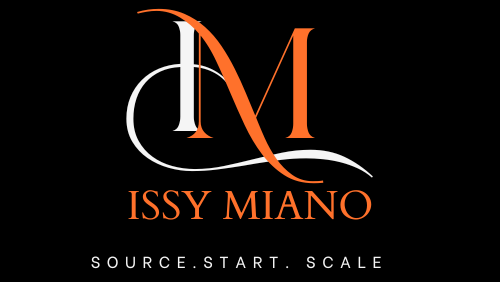Navigating Wholesale Marketplaces: Expert Strategies for Securing Top Deals
Navigating the complex landscape of wholesale marketplaces can be daunting for retailers and business owners looking to procure inventory at competitive prices. As someone experienced in sourcing products, I understand that finding the right deals is about more than just the lowest price; it’s about quality, reliability, and the terms of purchase that can make or break your profit margins. That’s why it’s crucial to have strategies in place to identify not only the most cost-effective deals but also partnerships that align with your business objectives.

In my journey, I’ve learned that negotiation is a fine art. To negotiate better prices, it’s important to come to the table prepared with market knowledge, a clear understanding of your acceptable price range, and the communication skills to articulate your needs convincingly. But even before entering negotiations, determining the credibility of a wholesaler is paramount. Genuine wholesalers offer transparent business practices, references, and verified information about their products—it’s a due diligence process that I emphasize to avoid pitfalls and establish long-lasting supplier relationships.
By leveraging my expertise, I aim to provide a guide that helps in identifying the best wholesale deals, negotiating better terms, and distinguishing genuine wholesalers from the less desirable ones. With this knowledge, retailers and business owners can confidently secure the deals that are most advantageous for their business growth and sustainability.
Understanding Wholesale Marketplaces
Before diving into wholesale marketplaces, it’s crucial to recognize the importance of partnering with authentic wholesalers and ensuring product legitimacy. This due diligence significantly affects your inventory quality and your business’s bottom line.
Identifying Genuine Wholesalers
When I enter a wholesale marketplace like Alibaba, my first step is always to separate genuine wholesalers from those who may not offer the best deals or might even be fraudulent. I examine the wholesaler’s reputation, such as how long they’ve been in business and any reviews or testimonials available. It’s also prudent to check whether they have a permanent business address and phone number, which adds to their credibility. For more insight on building strong supplier relationships, take a look at Navigating the Wholesale Market: Expert Tips for Store Owners.
Determining Product Authenticity
Ensuring the products I buy are authentic involves a thorough assessment of the wholesaler’s supply chains. I commonly ask for proof of authenticity, such as certificates or product origin documentation. High-quality images and detailed descriptions can also be indicators of authenticity. If possible, obtaining samples can be a reliable method to physically verify product quality before committing to a larger order.
Strategizing Negotiations
In my experience, successful negotiations with wholesalers aren’t about luck; they’re about careful planning and employing proven techniques. Below are the strategic approaches I’ve found essential in preparing for price discussions and executing effective negotiation techniques.
Preparing for Price Discussions
Before I enter any negotiation, my first step is gathering extensive knowledge about the products I’m looking to source. I focus on understanding market prices, quality standards, and even my potential supplier’s reputation. A thorough market analysis is crucial to establish a baseline for the negotiation.
I also ensure I have a clear understanding of my budget and the maximum price I’m willing to pay. This allows me to approach negotiations with a firm price range in mind. For complex deals, I sometimes explore financial safeguards like Trade Assurance on Alibaba.com to protect my orders.
Effective Negotiation Techniques
I’ve learned that productive negotiations are not confrontational but rather a search for mutual benefit. To this end, I start by building rapport with the supplier. Sharing my business goals and inquiring about theirs creates a collaborative atmosphere.
When discussing terms, I am concise and clear about my expectations, using precise language to avoid misunderstandings. It’s also essential to be flexible and creative, finding areas where I can concede something less important in return for a concession I value more.
Always remember to keep detailed records of agreements for future reference. A well-documented negotiation can inform strategy and ensure both parties fulfill their commitments.
